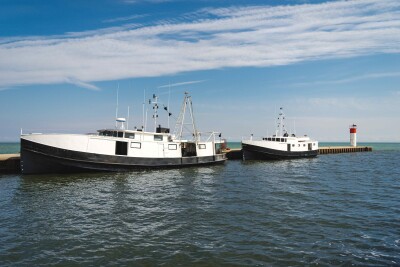Ahead of an International Commission for the Conservation of Atlantic Tunas meeting, a fierce debate has been raging about the quality and standards for bluefin tuna assessments.
Yesterday marked the opening of a three-day meeting of ICCAT's Working Group of Fisheries Managers and Scientists in Support of the Western Bluefin Tuna Stock Assessment.
On June 18, Pew Charitable Trusts released a fact sheet titled "The Best Available Science on Western Atlantic Bluefin Tuna." With all due respect to Pew, my faith lies in the dedicated careers of scientists like Steve Cadrin (UMass School for Marine Science and Technology), Molly Lutcavage (UMass Large Pelagics Research Center), Walt Golet (UMaine) and Ben Galuardi (UMass Large Pelagics Research Center).
This roster of four highly respected researchers wrote a response to Pew's fact sheet.
"In summary, the PEW factsheet is a subjective selection of information, lacks scientific credibility and appears to be agenda driven. Fishery managers should be aware of the uncertainties involved in Atlantic bluefin tuna biology and stock assessment and should consider the alternative hypotheses identified by the [Standing Committee on Research and Statistics] process, the 2012 Bluefin Tuna Stock Assessment Session and the 2013 Bluefin Meeting on Biological Parameters Review."
If a coalition of esteemed scientists and dedicated researchers told me I was lacking scientific credibility, I'd certainly reconsider my position.
Unfortunately, right now, the realm of research on Atlantic bluefin represents two disparate opinions. On the one hand, older stock models suggest the population should be much larger than it is; on the other hand, the low model suggests that bluefin's natural population in the western Atlantic is close to today's estimated levels.
The fact remains, however, that we have a 2012 stock assessment that is widely considered to be the best available science, though scientists acknowledge that our understanding of Atlantic bluefin population(s) still has gaps. We are working to close those gaps as a preference to closing a sustainable fishery.
After all, where is the glory in "saving" the bluefin from extinction simply by marking fishermen for the same fate?
As a member of the responding scientific coalition, Steve Cadrin, president of the American Institute of Fishery Research Biologists, recommends that fishery managers carefully consider all scientific theories in their decision making. That's sound advice with a transparent agenda to promote the fairest and broadest applications of science in the management of the nation's fisheries.






